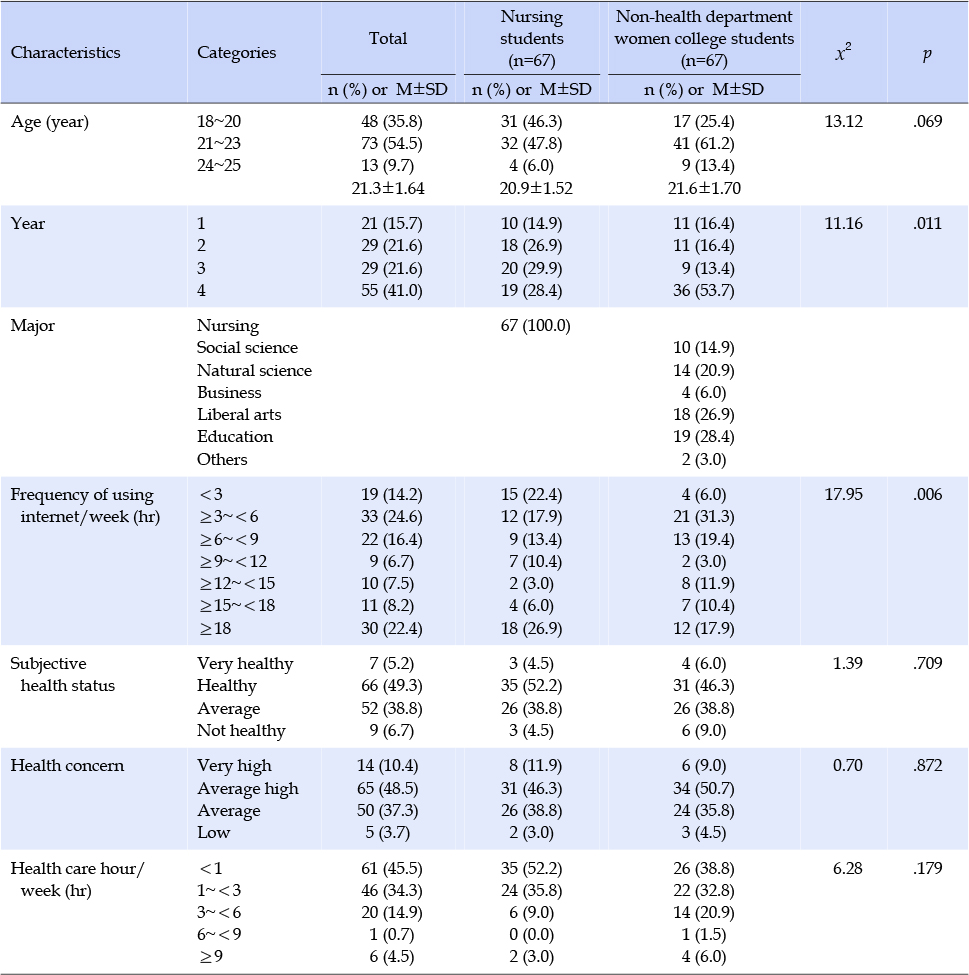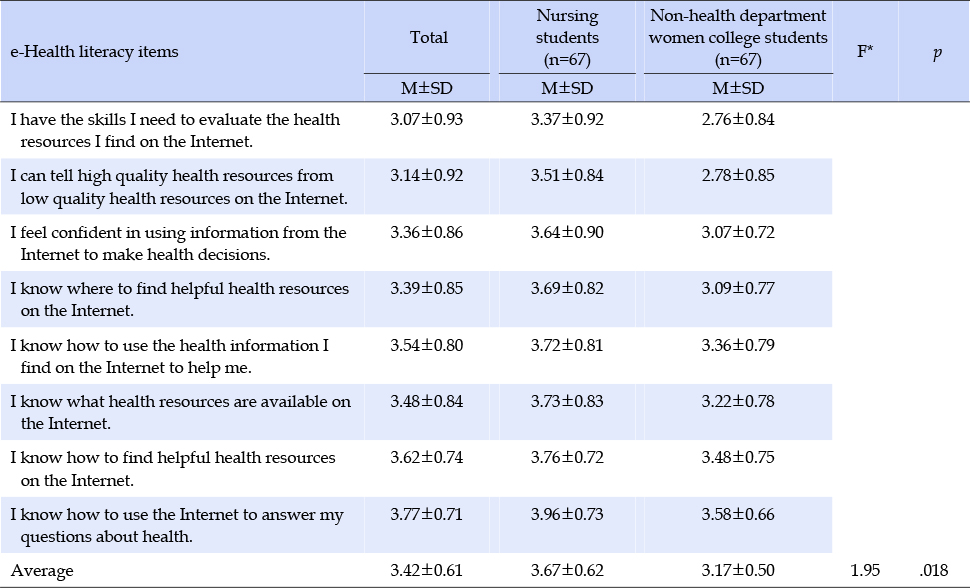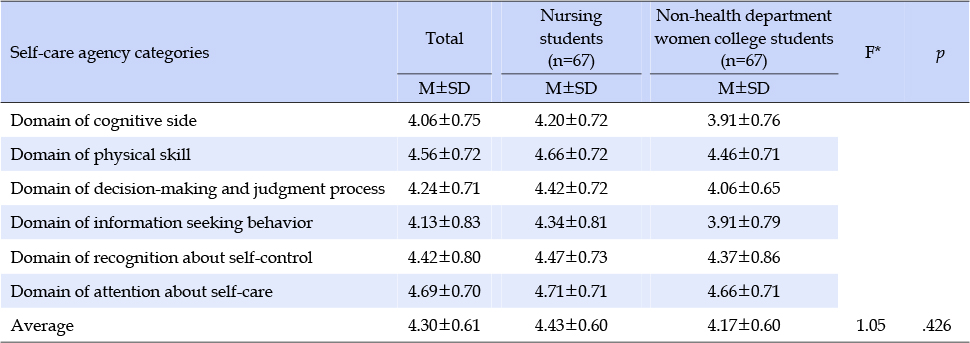1Graduate School, Ewha Womans University, Korea.
2College of Nursing, Ewha Womans University, Korea.
Copyright © 2017 Korean Academy of Nursing Administration
This is an open access article distributed under the terms of the Creative Commons Attribution Non-Commercial License (http://creativecommons.org/licenses/by-nc/3.0/), which permits unrestricted non-commercial use, distribution, and reproduction in any medium, provided the original work is properly cited.




*F by ANCOVA with year and frequency of using internet as covariates.
*F by ANCOVA with year and frequency of using internet as covariates.
a,b,c,d=Scheffé test.
*F by ANCOVA with year and frequency of using internet as covariates.
*F by ANCOVA with year and frequency of using internet as covariates.
a,b,c,d=Scheffé test.

